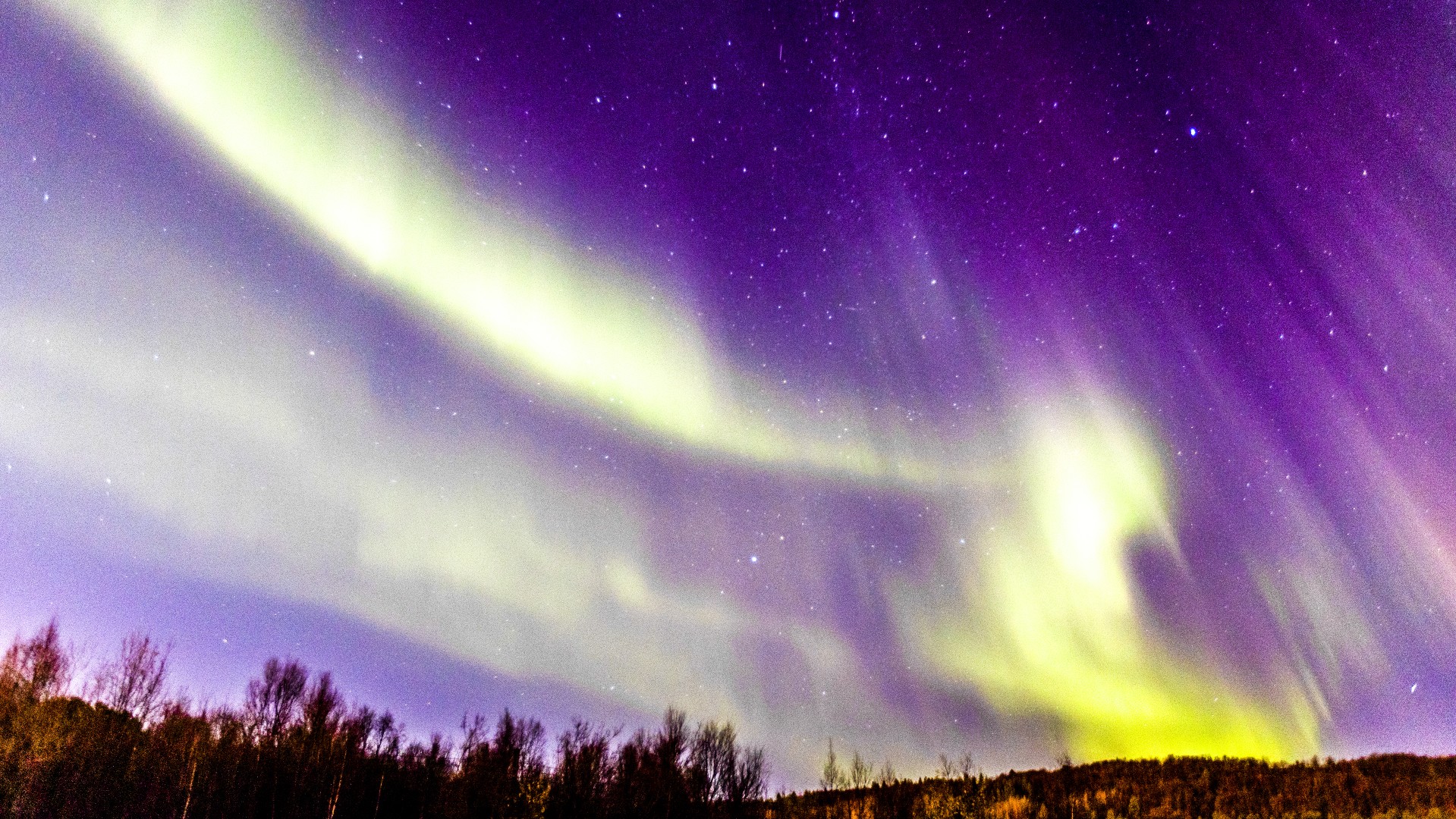Dazzling Northern Lights visible across UK: when and how to see them
Aurora Borealis seen as far south as Kent and Cornwall after ‘particularly strong solar flare’

A free daily email with the biggest news stories of the day – and the best features from TheWeek.com
You are now subscribed
Your newsletter sign-up was successful
Skygazers in Britain could be in for another spectacular Northern Lights show tonight after Sunday’s display was seen as far south as Kent and Cornwall.
The Telegraph said the Northern Lights, also known as the Aurora Borealis, “are formed by a solar flare erupting on the Sun, which releases electrically charged particles that collide with gas molecules in Earth’s upper atmosphere”.
Ranging from around 80 to hundreds of miles above the Earth’s surface, the interaction emits green and red colours over the poles, meaning it is usually best seen in high latitude regions closer to the Arctic, such as in Scandinavia, Greenland, northern Canada, Russia and Alaska.
The Week
Escape your echo chamber. Get the facts behind the news, plus analysis from multiple perspectives.

Sign up for The Week's Free Newsletters
From our morning news briefing to a weekly Good News Newsletter, get the best of The Week delivered directly to your inbox.
From our morning news briefing to a weekly Good News Newsletter, get the best of The Week delivered directly to your inbox.
In the UK the Northern Lights are usually only visible in Scotland and parts of northern England. However, The Times reported that last night a “particularly strong solar flare… was directed towards Earth”, meaning the aurora could be seen in southern English counties such as Kent and Cornwall.
Earlier this month Space reported “rare red aurora displays” across wide areas of Canada and Europe, including Scotland.
“The latest wave of dancing polar lights has been especially striking,” said the news site, “as it arrived in rare shades of red that require higher concentrations of solar wind particles to penetrate deeper into Earth’s atmosphere.”
How can you see them?
Usually, to see the Aurora Borealis “conditions must be dark and clear, with as little light pollution as possible”, said the Independent.
A free daily email with the biggest news stories of the day – and the best features from TheWeek.com
But according to the Met Office, the natural display could move in from about 7pm tonight through to about 4am tomorrow. Its video modelling shows the tip of Scotland tinged with red from about 9pm, “which appears to indicate a high probability of the aurora”, said The Times.
The further north you are, the more likely you are to see the display, said Sky News, yet “the conditions still need to be right – dark and clear nights”.